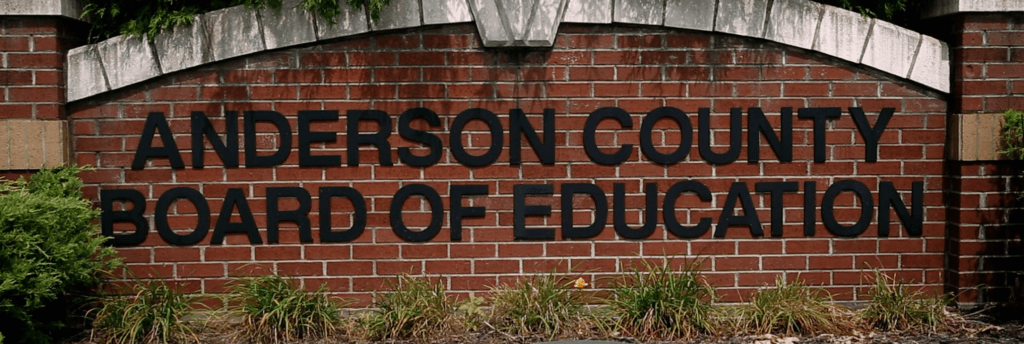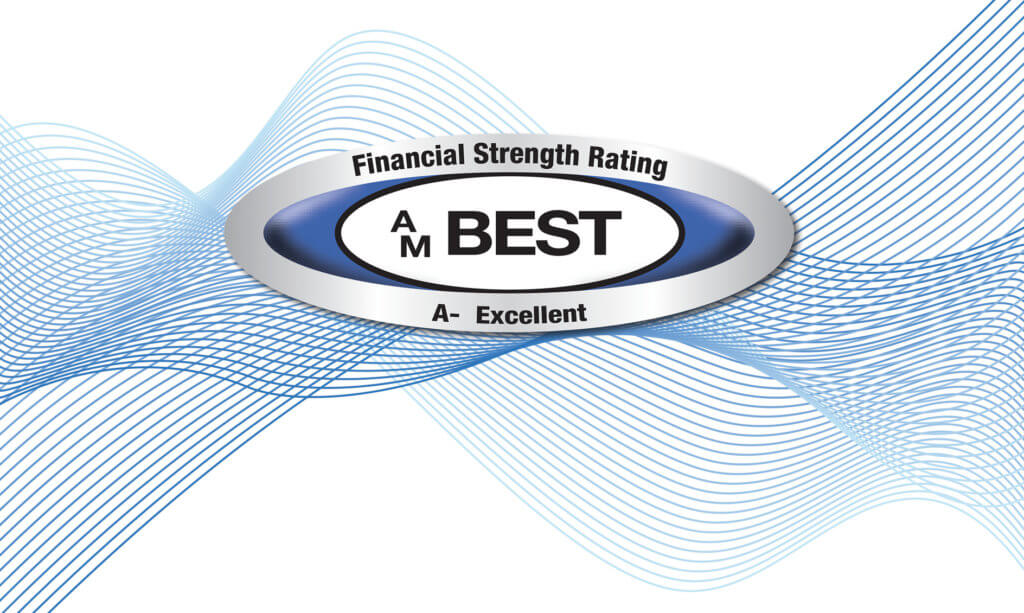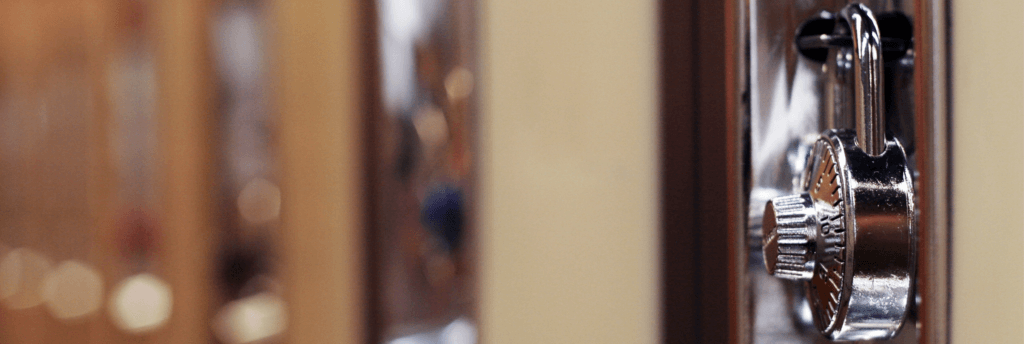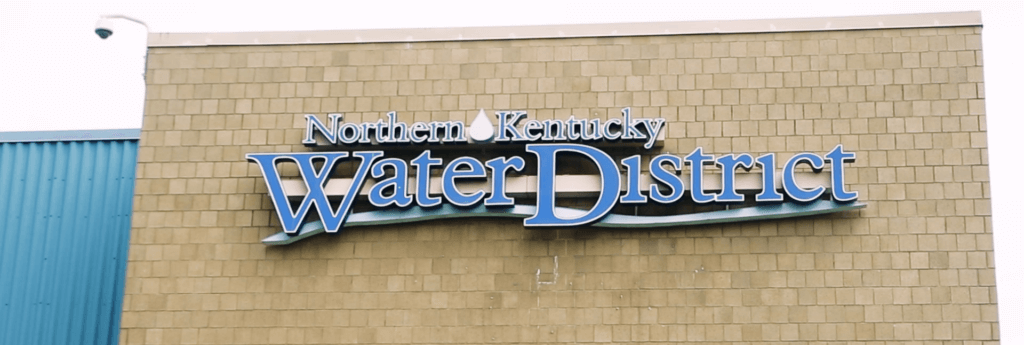Marsha Rogers, administrative assistant and workers’ compensation coordinator with the Anderson County Board of Education, highlights the importance of building a comfortable working relationship with KEMI as the district’s workers’ comp carrier. Rogers also explains how KEMI’s implementation of Medcor has reduced the need to search for details on a first report of injury (FROI), which helps streamline incident reporting and quickly connects claimants with KEMI.
Author Archives: Lucas Kidwell
A.M. Best has affirmed the Financial Strength Rating of A- (Excellent) and the Long-Term Issuer Credit Rating of “a-” of Kentucky Employers’ Mutual Insurance Authority (KEMI) (Lexington, KY).
The Credit Ratings (ratings) reflect KEMI’s balance sheet strength, which A.M. Best categorizes as very strong, as well as its adequate operating performance, limited business profile, and appropriate enterprise risk management.
KEMI President & CEO Jon Stewart remarked about the rating, “This is KEMI’s 23rd consecutive year for receiving an A.M. Best rating of Excellent, and it demonstrates our commitment to sound business practices and financial accountability so we may continue serving policyholders and their employees as we work together to protect and care for Kentucky’s workforce.”
Media Contact:
Ryan Worthen
KEMI Communications
rworthen@kemi.com
859-425-7800
Posted November 22, 2023
Cindy S., a former employee of Kentucky public schools, loves to make a difference in the lives of others.
Cindy enjoyed driving a school bus and working as a paraeducator for students with special needs. She also worked a third job at a lakeside restaurant to help make ends meet for her family.
On Oct. 26, 2016, Cindy slipped on a puddle of water and fell on the school cafeteria floor. She was in pain, and school officials encouraged her to go to the closest emergency department to be checked. X-rays revealed a fracture on her lower back. Cindy was scheduled for a follow-up visit with a neurosurgeon, given pain medication, and sent home.
Cindy could not afford to miss work, so she continued driving the school bus. She opted to grit through the pain rather than take medication that could have impaired her ability to drive, and she was not willing to jeopardize the welfare of her student passengers and others. She also continued reporting for her paraeducator job.
In December 2016, Cindy’s condition worsened. She had intense pain in her legs and was unable to move. She was taken to the emergency department and was diagnosed with a ruptured disc in her spine.
Cindy had surgery and was transferred to a rehab facility. She was released to go home in a wheelchair a few days before New Year’s Day 2017. Once home, Cindy developed a staph infection in the incision and had to undergo yet another surgery. Several weeks later she had a severe adverse reaction to an antibiotic and broke out in a rash. She was hospitalized again and received treatment.
Two years later, Cindy had a second ruptured disc that required another surgery. She also developed foot drop from additional nerve damage.
Today, Cindy is fully disabled and copes daily with chronic pain, limited mobility, and depression.
Asked what sustains her, Cindy said, “I’m a deeply religious person. My faith in God keeps me going. It’s a miracle that I can walk at all, and I credit the neurosurgeon who saw to it that I was a priority when an operating room opened at the crowded hospital.
“I have a wonderful husband who has been with me and prayed over the situation. He sticks with me through my pity parties and uncontrollable crying. My son tells the funniest stories. He makes me laugh, and I love that about him. And I have a loving family and caring friends who support me. I also have three dogs that give me purpose and a reason to get out of bed every morning.
“I wanted to return to work so badly, and occasionally I get to see children I had the privilege of working with and how they’ve blossomed into happy and outgoing young people. That really puts a lift in my day.
“And I’ve had the support of caring people. Julie from KEMI was there every step of the way trying to make sure everything went as smoothly as possible. She has been one of the bright lights who said, ‘I got you, Cindy, I’ll take care of it.’ When I’ve needed anything, it’s nice to have someone to advocate for you who cares about the human aspect and wants to make your day better.
“Through it all, the Lord has been good to me. Maybe my story can encourage others who have been seriously injured to count blessings and look forward to what they have and not what they’ve lost. If sharing my experience can help even one person, I am truly blessed.”
Cindy’s story is one of resilience and perseverance in the face of immense adversity. She is an inspiration to the KEMI team and to others who have been seriously injured.
Opened in 1936, Keeneland is the world’s largest and most prominent Thoroughbred auction house, conducting five horse sales annually. Situated in the heart of Kentucky’s Bluegrass Region in Lexington, Keeneland also hosts world-class racing twice annually during its boutique spring and fall meetings. Owners, trainers, riders, and fans from all over the world travel to Keeneland each year for an experience like none other.
Assistant Director of Human Resources Tiffany McDonald describes how developing a safety program to address circumstances unique to the horse industry helps achieve workplace safety goals for 286 full- and part-time employees plus 1,754 seasonal workers.
What role does safety play in Keeneland’s culture?
In fulfillment of Keeneland’s founding mission, the safety and welfare of horse and rider remain priority No. 1. Keeneland continues to support and invest in programs and initiatives that protect our equine and human athletes. All Keeneland employees take responsibility for doing their part to create the safest environment possible for the horse and for one another.
Employees work with multiple tools and equipment, and protecting team members from injury is of utmost importance. From patrolling the grounds 24/7, responding to calls for service, continuing to invest significantly in state-of-the-art technology and expertise to provide safe and consistent racing surfaces, and so much more, Keeneland ensures that we have a safe campus year-round!
What practices have you added to your program that helped improve your safety record?
We look at everything in an action/reaction frame of mind. We always consider what implications the task or event would have on individuals or patrons. We have implemented enhanced medical response protocols that provide on-site Level I trauma care, as well as proactive patrol and assignments on race days, during morning training hours for racehorses, and after hours.
Departmental meetings are held frequently throughout the year, and documentation of incidents is shared with applicable parties. After-action briefings and refresher trainings are conducted to address safety-related incidents and to better prepare employees to prevent future incidents.
What impacts or benefits have you seen resulting from a strong safety program?
Multiple departments have made communication a high priority. This enables departments to operate more efficiently and support one another in their respective tasks during stressful situations. Due to that, we have seen an injury record close to zero.
How has KEMI assisted in enhancing workplace safety and reducing claims?
Excellent communication and training platforms have helped Keeneland foster a workplace culture of safety for all staff members, and we look forward to continued development.
Keeneland is a special place to work with a unique schedule and set of demands. Earning the 2023 KEMI Destiny Award underscores how deeply our team is invested in our safety program so that Keeneland can provide the best experience possible for our horsemen and our guests.
Brandenburg Telephone Co., located on the Ohio River 40 miles southwest of Louisville in Brandenburg, Kentucky, offers telephone, broadband, streaming television, security, and surveillance systems. With 131 employees and workplace safety risks that can be life altering, Commercial Manager Kelly Roberts outlines why safety rules completely dictate a safe-minded culture.
What are workplace safety concerns unique to your industry?
Many of our facilities are aerial and can also be in proximity to high voltage electric lines. Falls and electrical voltage awareness are two primary concerns we address in our safety program. Each can have life-changing repercussions if safe practices are not followed.
What role does safety play in your company’s culture?
Safety is huge in our culture. Safety must be the primary focus of every job in order to embed its importance into every employee’s mind. We created a culture of workplace safety by establishing rules with consequences that are strictly followed from the top down.
What practices have you added to your program that helped improve your safety record?
In 2023, Brandenburg implemented a 4-foot rule on rotating machinery. No employee shall be closer than 4 feet of any rotating auger or guy anchor installation head. We also added an eye protection and glove protection requirement to our common line work program. These additions have reduced our chances of getting hurt around equipment and lessened our risk of eye and hand injuries. We feel these have had a positive impact on our record.
What impacts or benefits have resulted from a strong safety program?
Having a strong safety program benefits a company in multiple ways. Most importantly, it reveals and affirms to employees that the company cares about them and their families. A safe culture creates a sense of security with less stress to the employee resulting in a desirable work environment. This makes a company more efficient with less down time. Fewer accidents have positive financial impacts as well. Listing the benefits of having a strong safety program could go on indefinitely!
How has KEMI assisted in enhancing workplace safety and reducing claims?
KEMI’s free safety resource library is instrumental in providing the substance needed for some of the safety meetings held at Brandenburg Telephone Co. throughout the year. This past year’s safety meetings included topics such as ladder safety, distracted driving, and bucket truck safety, just to name a few.
KEMI’s recognition of energy and resources invested into developing a good safety program is also huge. Recognition is so vital in creating awareness of status among peer companies. Receiving acknowledgment for our efforts working on all fronts gives us incentive to continue those efforts. Maintaining workplace safety reduces claims!
What notable safety milestones or recognition has your organization achieved during the past several years?
Brandenburg Telephone Co. has been very fortunate the past few years in having low accident levels. Our track record is a testament to our employees’ commitment to safety. As a result, we were honored to receive the KEMI Destiny Award in 2017, 2018, 2019, 2020, 2021, 2022, and we are honored to receive our seventh Destiny Award in 2023!
Adair County Schools, a rural district located in southcentral Kentucky, enrolls 2,662 students and employs 214 certified personnel and 179 classified personnel. Carolee Lloyd, assistant to the superintendent, explains how the Adair County Board of Education is committed to providing a safe workplace to everyone employed within the school system.
What role does safety play in the school district’s culture?
Developing and implementing an effective workplace safety plan helps assist our employees in identifying hazards, reporting hazards, and dealing with incidents in a safe, quick, and correct manner.
We believe that mandatory annual workplace safety trainings our employees complete provide our workforce with knowledge and skills to perform their work in a way that is safe for them and their co-workers.
What practices have been added to your program that have helped improve your safety record?
Each school site has a designated person trained on the proper protocol when a workplace injury occurs. They meet annually with KEMI’s client service manager to ensure everyone is on the same page and receives the most current safety information.
Additionally, our Safety Committee meets quarterly with KEMI safety representatives to discuss any issues that may have arisen so we can proactively address any concerns.
How has KEMI helped your company when it comes to workplace safety and reducing claims?
When a new incident happens, KEMI has been amazing at assisting us with any questions or concerns in making sure our employees are taken care of and we have appropriately handled any safety issues. Our goal is to help prevent incidents from reoccurring.
What impacts or benefits have you seen as a result of having a strong safety program?
We encourage a culture of incident reporting so that our employees can be treated effortlessly and seamlessly. This not only creates a safer workplace, but also helps us identify how we can improve the workplace environment.
Workplace safety requires teamwork, and our collaborative effort was recognized last fall when the Adair County Board of Education was presented with a first-time KEMI Destiny Award.
Safety Coordinator Brad Murphy of the Northern Kentucky Water District (NKWD) describes how a strong culture of safety starts at the very top and succeeds with effort from everyone.
What is your primary business operation, and how many employees work for NKWD?
NKWD, located in Erlanger, Kentucky, employs more than 170 team members who help serve water to nearly 300,000 people in Campbell and Kenton counties and portions of Boone, Grant, and Pendleton counties. We cover over 229 square miles of total service area with more than 1,325 miles of water main.
What role does safety play in your company’s culture?
Our board of directors, president/CEO, vice presidents, directors, and all other management focus on the safety and health of NKWD employees. The board demonstrates its ongoing commitment through investing in our established safety program and by supporting new initiatives.
Education and training are proven components in sustaining our culture of safety. Because of the COVID-19 pandemic, we shifted how we delivered education to our employees, and we continue to educate and train through our Learning Management System.
We have also rolled out several online classes, such as Confined Space, Globally Harmonized System, and Incident Command System, etc. Plus, we have instituted a Corrective Action Training program for vehicle accidents.
Additionally, NKWD’s leadership team encourages all employees to take the National Incident Management System (NIMS) online courses through Federal Emergency Management Agency (FEMA).
Our experienced Safety Committee meets monthly to facilitate a safe workplace environment, address any safety concerns, and assist in the investigation and prevention of workplace accidents and injuries.
How has KEMI helped your company when it comes to workplace safety and reducing claims?
NKWD continues to conduct an annual review of our claims with KEMI to find the underlying cause of each one. Our goal is to prevent incidents from occurring at all and to avoid the same type of incidents from happening again.
Prior to the pandemic, KEMI’s safety team conducted an on-site 10-hour Occupational Safety and Health Administration (OSHA) class. Since restrictions for in-person gatherings have been lifted, we are working with KEMI to bring this educational opportunity back into our workplace.
What notable safety milestones or recognition has your company achieved?
From February 2019 to October 2021, NKWD set our longest record of no lost workdays due to accidents or injuries.
Additionally, as a direct result of the dedication of our leadership and employees for maintaining a safe working environment, NKWD has earned the KEMI Destiny Award for Safety 10 times from 2012 to 2022.
The dividend follows an $8.3 million dividend paid in 2022
Kentucky Employers’ Mutual Insurance (KEMI), Kentucky’s leading workers’ compensation insurance provider, is issuing a dividend of $15.9 million to eligible policyholders. The dividend results from the proactive management of claims by KEMI and its policyholders.
“We value the relationships with our policyholders and appreciate their commitment to workplace safety,” stated Jon Stewart, KEMI president and chief executive officer. “Payment of this dividend is a direct result of working together to keep Kentucky workers safe.”
With the dividend payment from KEMI, over 13,000 policyholders will receive a 20% return of their total premiums paid in policy year 2020. To qualify, policyholders must:
- Have a current active policy with KEMI.
- Have had an active policy for all 12 months of 2020.
- Have had a loss ratio of less than or equal to 65% for the 2020 policy year.
Dividend checks will be distributed throughout the month of August.
Between 2010 and 2023, KEMI issued dividend payments to policyholders totaling $85 million.
Media Contact:
Ryan Worthen
KEMI Communications
rworthen@kemi.com
859-425-7800
In this Q&A, Corbin Independent Schools Director of Safety Thomas E. Greer explains how an intentional approach to workplace safety has improved the safety record for the district while charting a course for other schools to follow.
How many people does Corbin Independent Schools employ?
We have 400 employees serving 3000+ students and their families in our elementary and secondary school system.
What practices have you added to your program that helped improve your safety record?
The creation of our District Safety Team has been a culture changer for our district. In past years, safety was always extremely important, but the conversations and behaviors were not always intentional.
Who serves on the District Safety Team?
I serve alongside other district directors; school principals; supervisors from food service, transportation, maintenance, and safety; a representative from KEMI; and a representative from our insurance agency. This dedicated team meets monthly to discuss at length each building’s current level of safety and next steps.
What has resulted from the formation of the District Safety Team?
Every school in our district is part of a process each semester as we conduct safety checks that include a preconference discussion, a walk-through at several facilities, and a debriefing with the principal of each location that includes a review of claims and discussion about prevention.
Any issues identified during the walk-through that warrant correction are assigned to appropriate personnel, and progress of corrections is monitored by the District Safety Team until all issues have been appropriately addressed.
The team representatives from each school truly have a zero tolerance for exposures and pass it on to their direct reports. Their approach during the walk-through is “you find it, we’ll fix it!”
How has this focused approach helped shape safety programs for other schools?
Many schools and districts have reached out for information regarding the safety initiatives we have underway. The requests have occurred through phone calls, emails, or social media, and we appreciate the opportunity to be a resource and share practices we’ve implemented that have positively impacted our safety record.
In addition to communicating with schools, we recognize the importance of keeping all stakeholders informed about our safety measures, so we utilize our communications platform, student and parent emails, local news media, and social media to provide the community with safety program updates.
What has been KEMI’s role in helping to enhance workplace safety and reduce claims?
The district requires all faculty and staff to be certified in adult, child, and infant CPR/AED, and we rely on KEMI’s Safety & Loss Control team to provide this training. KEMI also provides first aid training for faculty and staff and, at a minimum, annual safety training for our transportation department.
I’ve seen the benefits of utilizing KEMI as a resource and that’s why I strongly encourage other schools in the surrounding area to do the same.
What notable safety recognition has your company achieved during the past several years?
For the past three years, Corbin Independent Schools earned the KEMI Destiny Award for our commitment to workplace safety. We were proud to share this honor with many community members and stakeholders who were present for the award ceremonies.
Requirements
- Applies to new business only
- Governing classification* must be a target class code (see list below)
- Only applies to policies written in Preferred, Standard with Credit, or Standard 1.0
- Does not apply to policies written Standard with Debit, Accounts with occupational disease exposure, or Excess Rate accounts
* The governing classification on a policy is the basic classification with the greatest amount of payroll, excluding standard exception classifications (8810, 8871, 8742, 7380 and 8748). Additional rules apply to “if any” policies.
Commission Structure
The enhanced commission will apply for two years. Agent will be paid an 18% commission the first year, and if the account still meets all qualifications, agent will be paid 15% in second year. Year three commissions will revert to the same percentage as current filing.
| Eligible Classes | |
| Construction 5183 – Plumbing 5190 – Electricians 5213 – Concrete Construction NOC 5221 – Concrete or Cement Work 5348 – Tile, Stone, Marble – Inside 5403 – Carpentry NOC (Commercial) 5537 – HVAC Companies Healthcare 8832 – Physicians & Clerical 8835 – Public Health Nursing Hospitality 9082 – Restaurant NOC 9083 – Restaurant: Fast Food 9052 – Hotels 9058 – Hotels: Restaurant Employees Manufacturing 3179 – Electrical Apparatus Mfg. 3400 – Metal Goods Mfg. 4484 – Plastics Mfg: Molded Products | Retail 8010 – Hardware Stores 8017 – Retail Stores 8044 – Furniture Stores Others 3632 – Machine Shops 3724 – Millwright Work 8232 – Lumber Yards – New Materials Only 8292 – Storage Warehouse NOC 8380 – Automobile Service or Repair 8393 – Auto Body Repair 8748 – Automobile Salespersons 8820 – Attorneys 8831 – Veterinary 9012 – Property Management – Managers, Agents 9015 – Property Management – All Others 9014 – Janitorial Services 9033 – Housing Authorities 9063 – Exercise or Health Institute (YMCA) |











